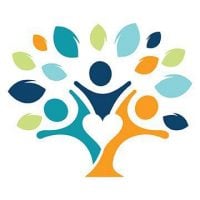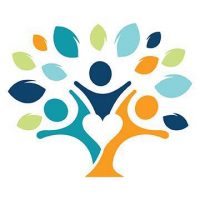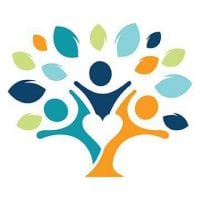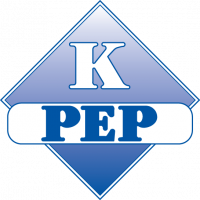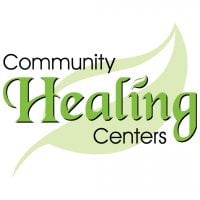Community Healing Centers
Drug Rehab Center in Niles, Michigan
Community Healing Centers in Niles, Michigan offers comprehensive mental health and addiction treatment services, including evidence-based and holistic care, personalized care plans, and a range of resources such as case management and education.
About Community Healing Centers in Michigan
Community Healing Centers Niles, located in Niles, Michigan, is a behavioral health treatment center that specializes in substance abuse and mental health services. With a focus on engaging individuals and their families, the facility offers a range of prevention, treatment, and recovery programs to serve the city of Niles and its surrounding areas.
• CARF accredited, ensuring high-quality care and treatment
• Accepts private health insurance, making services accessible
• Offers comprehensive care with various levels of treatment
• Dedicated to helping individuals overcome addiction and substance abuse
Community Healing Centers Niles is accredited by the Commission on Accreditation of Rehabilitation Facilities (CARF), demonstrating their commitment to providing top-notch treatment and care for their clients. The facility accepts private health insurance, making their services more accessible to those seeking help.
The center specializes in treating alcoholism, dual diagnosis, opioid addiction, drug addiction, substance abuse, and mental health issues. They offer a comprehensive approach to care, with various levels of treatment available to cater to individual needs.
Treatment options include aftercare support, drug rehab, dual-diagnosis treatment, intensive outpatient programs, intervention assistance, outpatient services, inpatient treatment, and detoxification. By providing a wide range of services, Community Healing Centers Niles aims to support individuals throughout their recovery journey and promote long-term success.
Genders
Ages
Modality
Additional
Accreditations

CARF
The Commission on Accreditation of Rehabilitation Facilities (CARF) is a non-profit organization that specifically accredits rehab organizations. Founded in 1966, CARF's, mission is to help service providers like rehab facilities maintain high standards of care.
Conditions and Issues Treated
Many people who struggle with opioid addiction need to attend specific programs like methadone , Suboxone or Vivitrol clinics.
These types of programs will provide the patient with legal, prescription medications that can help them overcome their cravings for illegal opioids like heroin or fentanyl . If the patient has a chronic condition like Hepatitis C, they must undergo treatment before they can begin taking these medications.
Dual Diagnosis is a specific relationship between two or more disorders that have the same symptoms and can sometimes be treated together. This is used in the treatment planning process when dealing with drug addicts. Dual diagnosis can be viewed as a chronic medical condition that has comorbid psychiatric disorders.
Although addiction and a mental illness may have separate symptoms that are not easy to detect, they often go hand in hand. Many times, drug abuse is a direct result of the mental illness. In other words, treating the addiction will not resolve all of your issues. Unless you also treat the underlying mental illness, you will not be successful in achieving sobriety.
Levels of Care Offered
This center offers a variety of custom treatment tailored to individual recovery. Currently available are Aftercare Support, Drug Rehab, Dual-Diagnosis, Intensive Outpatient, Intervention, Outpatient, with additional therapies available as listed below.
An intensive outpatient program is usually the first phase of addiction treatment. It provides relief for those who are addicted, but are not ready to commit to an inpatient setting. Typically, the patient lives at home and is able to work or go to school. IOPs consist of a daily 3 to 5-hour program, and there is a required number of hours per week. Most patients go to IOP between 20 and 40 hours per week. The patient attends group counseling and individual therapy throughout the duration of treatment. They also meet daily with their therapist to discuss how it’s going and where they are in the recovery process.
The goal here is to teach patients healthy coping skills, such as stress management and identifying thoughts and behaviors that lead to relapse. The implementation of these skills will be useful as the individual transitions into the next phases of treatment.
An outpatient treatment program is set up to help with alcohol or drug addiction, or a co-occurring disorder. The patient must attend the Michigan facility for their therapy and other programs but are able to return home each night. The frequency of mandatory attendance decreases after much of Community Healing Centers‘s program is complete.
Intervention services can be beneficial for people who have not been able to overcome drug and alcohol addiction on their own. It is recommended for individuals whose addiction has led to dangerous or life-threatening circumstances.
Intervention services are beneficial for:
- People who have relapsed after completing other forms of addiction treatment.
- People with drug addictions that have led to dangerous health conditions, such as HIV.
- People who are at risk of losing their family, home, or job due to addiction.
- People who are having difficulty overcoming drug and alcohol addiction on their own.
- An intervention can be conducted by professionals, or by loved ones of an addict. If the person being intervened on agrees to enter addiction treatment after the intervention, the next step would be to choose a treatment program.
If they do not agree to enter addiction treatment after the intervention, loved ones may choose to go back to the drawing board and try another form of treatment. They may also choose to not receive any further treatment, but there are usually other factors in play that may make it difficult for people to stop using drugs or alcohol.
Aftercare is a term that’s used to refer to any sort of continuing care offered for a drug addict who has voluntarily entered a rehabilitation program. This type of care can be provided in several settings, including outpatient therapy sessions after the addict has completed an inpatient program. There are also 12-step support groups, such as Alcoholics Anonymous, which can provide additional help for addicts trying to stay sober.
Therapies & Programs
Individual Therapy is a critical component of addiction recovery. Therapists work with patients to identify the root of their addiction and figure out how to better handle the issues that led to them using drugs. Individual Therapy is the one-on-one session where people meet with their therapist. Individual therapy provides a safe space for people to open up and discuss personal and sensitive topics which they may not feel comfortable discussing in a group setting.
Couples therapy at Community Healing Centers focuses on addiction treatment for the addict and their spouse. The addict’s family, not just the addict, can benefit from this form of therapy. Couples therapy addresses communication problems, trust issues, lack of intimacy, and abuse in intimate relationships. Couples therapy can help rebuild trust between partners, which increases the chances for successful treatment and sustained recovery.
Intimate relationships can be damaged during addiction, and professional help may be necessary to rebuild the often destroyed trust and love. Couples therapy at Community Healing Centers helps couples improve communication and rebuild trust. Either or both partners will be helped by this treatment administered by professionals. This treatment can also help one or both partners if addiction is the problem.
Family therapy will also help families realize that the addiction is not their fault. For many years, people blamed themselves for an addict’s behavior and felt that they had done something wrong. This is not the case. Addiction is a disease, and it can strike anyone, even if their life seems fine from the outside. It can bring a lot of shame to a family when they have an addict in their midst, but if everyone is open and honest with each other, then they can help everyone stay in recovery.
Group Therapy is utilized by drug treatment centers like Community Healing Centers to provide the recovering drug addict with a platform to talk about their feelings and experiences. It also provides for an opportunity to learn from other addicts who have successfully overcome their addiction.
Group Therapy is employed in lectures, seminars, or discussion groups (the latter two are typically conducted as “therapy groups”). It is recommended that all group members be recovering addicts for this type of therapy to work (though it does not exclude others with lived experience).
Payment Options Accepted
For specific insurance or payment methods please contact us.
Is your insurance accepted?
Ask an expert, call (888) 674-0062
Community Healing Centers Associated Centers
Discover treatment facilities under the same provider.
- Community Healing Centers - Elizabeth Upjohn Community Healing Center in Kalamazoo, MI
- Community Healing Centers - Gilmore Community Healing Centers in Kalamazoo, MI
- Gilmore Community Healing Centers in Kalamazoo, MI
- Community Healing Centers in Niles, MI
Learn More About Community Healing Centers Centers
Additional Details
Specifics, location, and helpful extra information.
Niles, Michigan 49120 Phone Number(269) 684-7741 Meta DetailsUpdated April 15, 2024
Staff Verified
Community Healing Centers Patient Reviews
There are no reviews yet. Be the first one to write one.
Niles, Michigan Addiction Information
Michigan has the second-highest rate of drug and alcohol abuse in the nation. Heroin is linked to more than 50% of the state's hepatitis C cases. Marijuana is the drug most often associated with crimes in Michigan, followed by methamphetamines. Opioids alone are responsible for almost 20% of all drug overdose deaths in Michigan.
Over 16,000 people in Niles are addicted to drugs, and almost 30,000 are abusing drugs. Drug addiction and abuse can lead to several negative consequences. According to recent statistics, over 16,000 people in Niles are addicted to drugs, and almost 30,000 are abusing drugs. There are different types of rehabilitation centers in Niles. The type of treatment that will be best for an individual depends on their addiction and their individual needs.
Treatment in Nearby Cities
- Ionia, MI (100.9 mi.)
- Northville, MI (148.1 mi.)
- Plainwell, MI (53.0 mi.)
- Bad Axe, MI (214.5 mi.)
- Holly, MI (150.1 mi.)
Centers near Community Healing Centers
The facility name, logo and brand are the property and registered trademarks of Community Healing Centers, and are being used for identification and informational purposes only. Use of these names, logos and brands shall not imply endorsement. RehabNow.org is not affiliated with or sponsored by Community Healing Centers.
